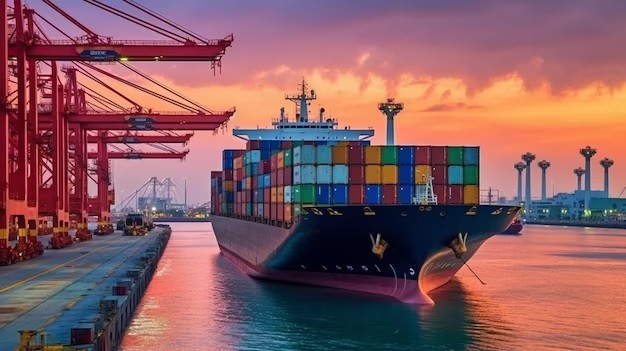A recent report by the EIU (a research firm of the Economist Group) shows that developments in the Red Sea could slow down economic growth in Asia and fuel inflation there.
“ Asian exports were already being hit last year by weaker Western demand, so the recent attacks on cargo ships will put further pressure on export-dependent economies, particularly those in Southeast Asia, ” the EIU report said. The countries most affected, according to the EIU, are Indonesia, Thailand and Malaysia.
 |
| Houthi attacks on ships in the Red Sea are raising concerns about disruption to international trade. |
According to the International Monetary Fund (IMF), in the first two months of the year alone, trade activities on the Suez Canal have decreased by 50% compared to the same period last year. Attacks by Houthi forces on cargo ships in the Red Sea have reduced the number of ships moving through the Suez Canal.
It is the shortest shipping route between Europe and Asia, carrying 15% of global seaborne trade. To avoid attacks, cargo ships are diverted around the Cape of Good Hope in Africa. This increases the average shipping time by 10 days, affecting businesses with limited inventory.
Shipping goods from Europe to Malaysia and Singapore now takes 56 days, compared to 32 days before the Houthis began attacking cargo ships in November 2023, while shipping times to China have increased from 42 to 55 days, the EIU said.
“ Disruptions in supply chains and weaker consumer demand could shave 0.2-0.5% off Asia’s economic growth this year. In contrast, inflation in the region is forecast to rise by 0.4%. Accelerating inflation will make it harder for central banks in the Philippines, Australia and India to find opportunities to cut interest rates ,” the EIU said.
Claire Hamonic, CEO of insurance company Ascoma International, said that it is estimated that war insurance premiums have increased by 5-10 times for ships and cargo passing through the Red Sea. According to some anonymous industry sources, the current war risk insurance rate is between 0.6-1% of the value of the ship.
In January 2024, the Chairman of the Suez Canal Authority, Mr. Osama Rabie, said that the number of ships passing through the Suez Canal in the first two weeks of January 2024 decreased by 30% compared to the same period last year, from 777 ships to 544 ships.
According to Mr. Rabie, revenue in USD from the Suez Canal in the first two weeks of January 2024 decreased by 40% compared to the same period in 2023, while the volume of transport decreased by 41%.
Source







![[Photo] General Secretary To Lam chairs the meeting of the Central Steering Committee on preventing and combating corruption, waste and negativity](https://vphoto.vietnam.vn/thumb/1200x675/vietnam/resource/IMAGE/2025/9/29/fb2a8712315d4213a16322588c57b975)





























































































Comment (0)